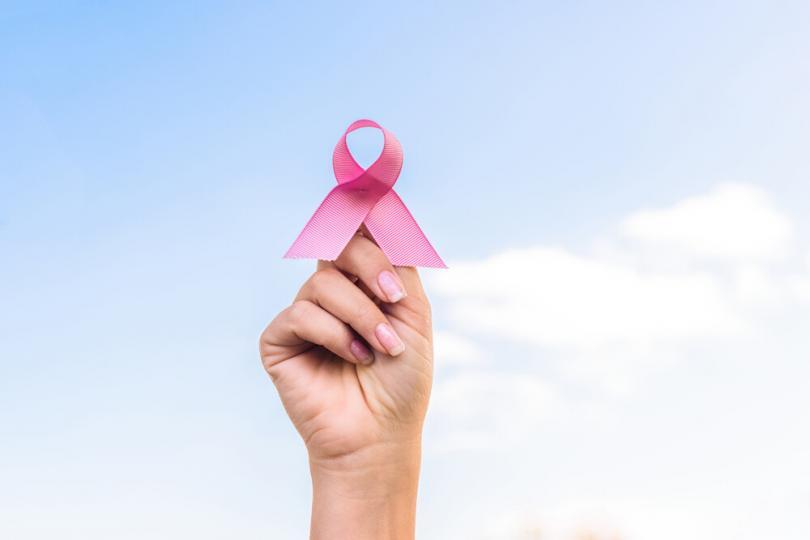Every woman is obliged to visit a mammologist once a year – to do an ultrasound or mammogram. This will allow the doctor to see the formation of both breast cancer and mastopathy.
Mastopathy is found in 50-90% of women of childbearing age. Can this benign neoplasm develop into breast cancer, why it occurs and what to do with it, said the doctor-oncosurgeon-mammologist at the ISIDA clinic Gabelko Julia Andreevna.
Causes of mastopathy
Mastopathy is a disease of the breast of a non-inflammatory nature, in which case the ratio of epithelial and connective tissue in the structure of the gland is disturbed. This leads to cystic or fibrous formations.
Among the possible causes of mastopathy are:
genetic factor;
thyroid disease;
early onset of menstruation – up to 12 years;
first pregnancy after 35 years;
no pregnancy during life;
refusal of breastfeeding or interruption of GV;
chronic stress;
diabetes;
gynecological diseases;
abortions;
smoking, alcohol abuse – increases the level of estrogen in the blood;
hormonal imbalance.
Hormonal disorders are one of the most common causes of mastopathy. Why?
Estrogens – estradiol, estriol, estrone – are produced by the ovaries and adrenal cortex. They are responsible for the growth of the inner layer of the uterus (endometrium) and its monthly rejection if pregnancy has not occurred. Every month, before menstruation, estrogens activate the division and proliferation of breast cells – the level of estrogen in the blood increases and progesterone decreases. Thus, the body prepares for the theoretically possible lactation. With the onset of menstruation, estrogen levels decrease. In the case of hormonal imbalance, there is a high level of estrogen and low progesterone. Excess estrogen leads to the formation of mastopathy, as well as fibroadenoma, uterine fibroids, endometriosis.
Excess prolactin can provoke mastopathy. This hormone is responsible for the growth and development of the mammary glands, milk production. If the level of prolactin increases, the level of progesterone decreases. Significant and persistent increase in prolactin outside of pregnancy leads to impaired ovulation, menstrual cycle, breast function.
Therefore, the balance of hormones is more than important for a woman’s health.
Types and symptoms of mastopathy
Mastopathy can be nodular and diffuse. In the case of a nodule in the breast, a seal is formed – a single node. Diffuse is divided into four types:
Glandular;
Fibrous;
cystic – multiple cysts are formed in the breast;
mixed, for example, fibrocystic.
Mastopathy is not a cancer, but it increases the risk of breast cancer by 3-5 times.
The development of mastopathy often occurs asymptomatically. But the monthly appearance of pain before and during menstruation – is a signal of dysfunction of the mammary glands. Normally, the chest does not hurt. Swelling of the mammary glands 3-4 days or 2-3 weeks before menstruation is called cyclic mastalgia. And it can be a symptom of mastopathy, which many women perceive as part of menstruation.
Other symptoms of mastopathy include:
dull acrid chest pain, independent of the menstrual cycle;
increased sensitivity of the breasts and nipples;
breast enlargement (feeling of distension);
the appearance of seals that did not exist before;
transparent serum discharge from the nipple.
Diagnosis and treatment of mastopathy
Every woman is obliged to visit a mammologist once a year – to do an ultrasound or mammogram. This will allow the doctor to see the formation of both breast cancer and mastopathy. Consultation with a doctor is indicated in the case of one or more symptoms of mastopathy. And also – during cyclic mastalgia, which is not the norm.
Treatment depends on the patient’s age, type of mastopathy and the number of tumors. The woman is recommended to follow a diet that excludes the use of alcohol, caffeine, chocolate, cocoa. Eat citrus fruits, raspberries, black currants, cherries, foods containing fiber – to improve intestinal motility. B vitamins are prescribed, as well as A, C, E, P, diuretics, enzymatic drugs. Hormonal drugs are selected, for example, oral contraceptives, antiestrogens, progestogens.
In the case of nodular mastopathy, surgery is performed to remove the nodules. This reduces the risk of developing benign to malignant (breast cancer). The operation is also shown in the case of rapid growth of the node.
Mastopathy requires observation and timely diagnosis. And since the best treatment for the disease is prevention, don’t forget to check your breasts every year. Seek medical attention immediately if you experience pain, discharge from the nipple, or seals.
Take care of your health!







